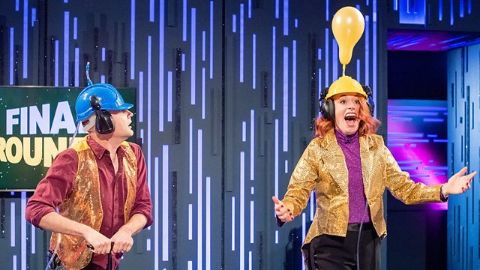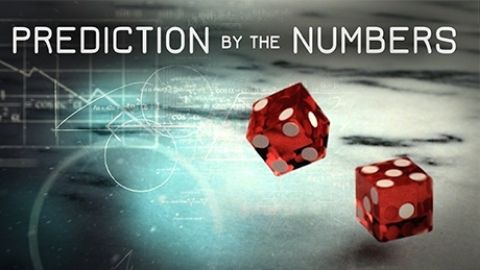You might also like
Kicking off the lectures with a mind-boggling stunt to prove how counterintuitive our gut instincts can be, Hannah launches into a lecture full of daring live experiments and surprising discoveries. From predicting the chance of snow at Christmas to dodging erupting volcanoes with Prof Chris Jackson, Hannah explores whether we really can predict the future. She meets the maths gurus behind Liverpool Football Club's winning streak to spill the beans on how analysing the numbers can give a team an edge in the Premier League, and reveals the tricks to perfecting your Christmas cracker pull to win the prize every time. Hannah also gathers tips from mind-performance coach Dr Michael Gervais, the 'secret weapon' crafting Olympic athletes' lucky mindsets, and the man responsible for Felix Baumgartner's jump from space, when 'first time lucky' meant life or death. Enrolling the help of maths comedian Matt Parker for the pinnacles of the lecture, the duo find order in unruly crowds, and whittle the audience down to the luckiest person in a series of challenges, before finally putting them to the test to prove whether they truly are one in a million. Using a host of maths tricks - from probability to game theory - Hannah discovers if we can in fact make our own luck, and ultimately shares the secrets to help us all lead luckier lives.
S1E1 • Royal Institution Christmas Lectures: Secrets and Lies - The Hidden Power of Maths • 2019 • Math
Why are most manhole covers round? Sure it makes them easy to roll, and slide into place in any alignment. But there’s another, more compelling reason, involving a peculiar geometric property of circles and other shapes. Marc Chamberland explains curves of constant width and Barbier’s theorem.
Predictions underlie nearly every aspect of our lives, from sports, politics, and medical decisions to the morning commute. With the explosion of digital technology, the internet, and “big data,” the science of forecasting is flourishing. But why do some predictions succeed spectacularly while others fail abysmally? And how can we find meaningful patterns amidst chaos and uncertainty? From the glitz of casinos and TV game shows to the life-and-death stakes of storm forecasts and the flaws of opinion polls that can swing an election, “Prediction by the Numbers” explores stories of statistics in action. Yet advances in machine learning and big data models that increasingly rule our lives are also posing big, disturbing questions. How much should we trust predictions made by algorithms when we don’t understand how they arrive at them? And how far ahead can we really forecast?
Where earth meets sky: how the most thrilling and dangerous point at the top of the world continues to fascinate, and what it takes to conquer the Big One.
S1E1 • History By The Numbers • 2021 • Math
In Egypt, professor Marcus du Sautoy uncovers use of a decimal system based on ten fingers of the hand and discovers that the way we tell the time is based on the Babylonian Base 60 number system. In Greece, he looks at the contributions of some of the giants of mathematics including Plato, Archimedes and Pythagoras, who is credited with beginning the transformation of mathematics from a counting tool into the analytical subject of today.
S1E1 • The Story of Maths • Math





